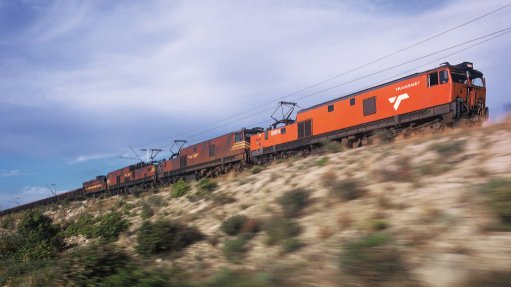Customs and port authorities
One of the most intriguing aspects of life, for me, is the origin of words. In the customs and international trade environment, in particular, words are used mostly devoid of their meaning. This is reminiscent of Irish rock band U2’s 1987 song, Where the Streets Have No Name, which, if I had to paraphrase it, would be Where the Words Have No Underlying Meaning.
Have you ever wondered about the origins of the words ‘customs’, ‘port’ and ‘authorities’? A safe assumption would be that all three are of Latin origin. As for ‘customs’, it originates from the word ‘consuescer’, meaning “become accustomed”, while ‘port’ originates from ‘portus’, which simply means “haven” or “harbour”. Remember that, on a ship, the port side is on the left side. Are you curious as to the origins of associated words such as ‘import’ and ‘export’? If so, take that as homework, and add ‘portcullis’ to the list.
That leaves ‘authority’, which originates from ‘auctoritas’, a reference to the level of prestige that a person commanded in Roman society and the associated standing, influence and, most importantly, ability to rally support.
You might be wondering about the relevance of the introduction. Well, on October 31, the World Customs Organisation (WCO) announced the release of its and the International Association of Ports and Harbours’ (IAPH’s) 92-page ‘Customs and Ports Authorities Cooperation Guidelines’. It did so at the IAPH 2023 World Ports Conference, held in Abu Dhabi, in the United Arab Emirates.
The sole objective of the guidelines is to address several challenges in establishing cooperation between customs and port authorities, especially in the current digital era.
The document outlines best practices between customs and port authorities in advanced, emerging and developing countries over the past decades. Specific attention is paid to small island developing States, with the document providing reviews of their journeys in the field of cooperation to accelerate digitalisation and sustainability. Existing instruments, such as the SAFE Framework of Standards, were leveraged to design and implement the regulation of customs and port digital systems, and both port and customs authorities have amended port and customs legislation to comply with data harmonisation requirements to facilitate trade.
The guidelines also outline methods to institutionalise cooperation, establish a data governance policy and ensure a mutual understanding of one another’s business, with a particular focus on digitalising data flows. Further, the guidelines cover business processes and supporting information technology systems, including the involved actors and the use of innovative technologies.
The document concludes by discussing the implementation of interoperability between customs authorities’ and ports’ automated systems for the single submission of logistics and operational datasets, emphasising adherence to WCO and International Maritime Organisation (IMO) reference data models.
At the conference, WCO deputy secretary- general Ricardo Treviño Chapa stated: “The WCO has long advocated for digitalisation in cross-border trade procedures, developing standards to facilitate the process. This includes a data model encompassing customs procedures and those under the purview of international organisations. Our collaboration with the IMO to update the IMO Compendium on Facilitation and Electronic Business aims to enhance interoperability between customs’ and ports’ digital systems. It’s now up to customs administrations and port authorities to advance this digitalisation agenda. These guidelines offer insights on improving operations and efficiency in customs processes at ports and ensuring harmonisation with the WCO data model.”
IAPH MD Patrick Verhoeven remarks in the guidelines’ foreword: “In our own project to identify gaps in global port infrastructure last year, our principal finding on trade facilitation was the issue of trust and the challenge of sharing data in a collaborative manner between port community stakeholders to optimise a vessel port call and minimise berth waiting time. By adopting a common agenda with a solid, sustainable governance structure in place to exchange ‘single truth’ data, ports and customs authorities can ensure supply chain security, thus improving trade facilitation in their respective countries.”
In essence, the guidelines underscore the importance of understanding business processes and systems to drive interoperability and foster resilience through emerging technologies.
Comments
Announcements
What's On
Subscribe to improve your user experience...
Option 1 (equivalent of R125 a month):
Receive a weekly copy of Creamer Media's Engineering News & Mining Weekly magazine
(print copy for those in South Africa and e-magazine for those outside of South Africa)
Receive daily email newsletters
Access to full search results
Access archive of magazine back copies
Access to Projects in Progress
Access to ONE Research Report of your choice in PDF format
Option 2 (equivalent of R375 a month):
All benefits from Option 1
PLUS
Access to Creamer Media's Research Channel Africa for ALL Research Reports, in PDF format, on various industrial and mining sectors
including Electricity; Water; Energy Transition; Hydrogen; Roads, Rail and Ports; Coal; Gold; Platinum; Battery Metals; etc.
Already a subscriber?
Forgotten your password?
Receive weekly copy of Creamer Media's Engineering News & Mining Weekly magazine (print copy for those in South Africa and e-magazine for those outside of South Africa)
➕
Recieve daily email newsletters
➕
Access to full search results
➕
Access archive of magazine back copies
➕
Access to Projects in Progress
➕
Access to ONE Research Report of your choice in PDF format
RESEARCH CHANNEL AFRICA
R4500 (equivalent of R375 a month)
SUBSCRIBEAll benefits from Option 1
➕
Access to Creamer Media's Research Channel Africa for ALL Research Reports on various industrial and mining sectors, in PDF format, including on:
Electricity
➕
Water
➕
Energy Transition
➕
Hydrogen
➕
Roads, Rail and Ports
➕
Coal
➕
Gold
➕
Platinum
➕
Battery Metals
➕
etc.
Receive all benefits from Option 1 or Option 2 delivered to numerous people at your company
➕
Multiple User names and Passwords for simultaneous log-ins
➕
Intranet integration access to all in your organisation

















